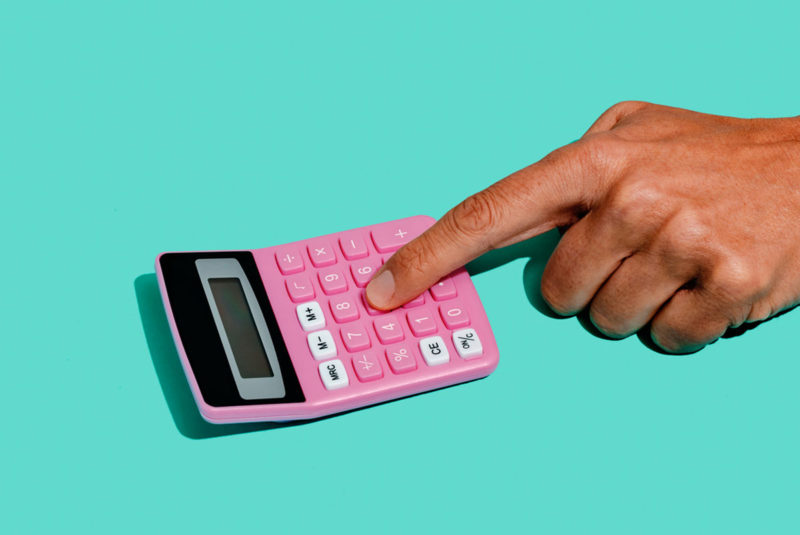There’s no question that paying your bills on time is the most important rule to follow when it comes to earning great credit. Yet even a flawless payment history won’t result in the perfect credit score. Believe it or not, 65% of your FICO® Score has nothing to do with whether you make your monthly payments on time.
Credit scoring models like FICO® and VantageScore® are designed to consider many different factors that can help predict your credit risk. One of the factors that can influence your credit scores is the mixture of accounts on your credit reports.
Keep reading for a breakdown of why the different types of accounts that show up on your credit reports matter.
Credit Mix and Your Credit Scores
Before we go any further, it’s a good idea to keep things in perspective when it comes to your credit mix.
Credit mix has a small influence over your credit scores compared with more important factors like payment history and credit utilization.
Yet although credit mix doesn’t have a huge impact on your credit scores, it does matter. With FICO® scoring models, credit mix determines 10% of your score.
Since FICO® scores range from 300 – 850, that leaves a potential 550 points up for grabs, depending upon your credit report. Therefore, it’s possible that a good credit mixture could be worth up to 55 points (10% of 550) to be added to your overall credit scores. (Note: Having the perfect credit mix won’t automatically earn you 55 points because credit scoring is a bit more complicated than that. But, a good mix of credit accounts can certainly be helpful.)
Credit mix is a scoring factor considered in VantageScore® scoring models as well. In fact, credit mix is classified as “highly influential” over your VantageScore® credit scores. However, that’s in combination with the length of your credit history in this case – under FICO® credit scoring models, length of credit history is a completely separate scoring category worth another 15% of your scores.
What Kinds of Credit Accounts Are There?
One of the ways creditors assess the risk of loaning you money is by looking at your ability to manage the different types of credit accounts on your reports. Some of the different credit types that might appear on a credit report include:
- Credit cards
- Retail store credit cards
- Lines of credit
- Home equity lines of credit (HELOCs)
- Mortgages
- Student loans
- Auto loans
- Personal loans
You’ll notice that the list above didn’t contain any types of bank accounts from financial institutions such as checking accounts (or debit cards), savings accounts, money market accounts, or certificates of deposit. Also missing are individual retirement accounts (traditional IRA, Roth IRA, etc.), payday loans, and title loans.
None of these account types show up on credit reports. As a result, they don’t influence your credit mix nor do they have any direct impact upon your credit scores.
What happens when a credit account is closed?
As a rule of thumb, you shouldn’t close old credit card accounts because it can be bad for your credit scores. Yet although closing an account might hurt your scores, the damage might not occur for the reason you think.
Closed accounts – credit cards or otherwise – don’t suddenly disappear from your credit reports. Instead, they can remain on your reports for up to 7 – 10 years. Negative accounts are typically removed after seven years. Positive accounts typically remain for 10 years.
As long as an account is included on your credit reports, it’s factored into your credit scores. The age of the account, for example, continues to count in your average age of credit. Closed accounts continue to be factored into your credit mix as well, and will influence your credit scores accordingly.
How Many Credit Accounts Should You Have?
You don’t need to have an account from every category above on your credit reports to earn fantastic credit scores. For example, it’s probably a bad idea to rush out and apply for a mortgage loan simply because you want to add another type of account to your credit reports.
But, there are two types of consumer credit accounts that you probably should aim to have present on your reports – revolving accounts and installment accounts.
Revolving accounts are an easy addition. Just apply and get approved for a single credit card, then use it responsibly.
Installment accounts are a bit trickier. You should generally avoid taking out an installment loan unless it’s necessary. Even so, you’ll likely have an installment account on your credit accounts before too long, whether you like it or not – student loans, auto loans, and mortgages all make the cut.
Don’t think you’ll need any of the above installment loans? Try a credit builder loan instead.
Installment and revolving accounts
Installment accounts are loans where you borrow one time and then pay the lender back by making monthly payments for an agreed-upon period of time. Most features of an installment loan are fixed – a fixed initial loan amount, a fixed monthly payment amount, and fixed payback terms. Many (though not all) installment loans feature fixed interest rates as well. Common types of installment accounts include:
- Mortgages
- Student loans
- Auto loans
- Personal loans
Revolving accounts are more flexible. Instead of borrowing one time and paying the money back, you can typically borrow again and again with a revolving account, up to a specific line of credit. Once you pay back at least a portion of what you borrowed on a revolving account, you’re free to borrow up to the credit limit again. Different features of your revolving account may vary from month to month – including the account balance, the minimum required payment and the interest rate. Common types of revolving accounts include:
- Credit cards
- Retail store credit cards
- Lines of credit
- Home equity lines of credit (HELOCs)
If your credit reports lack diversity in either the revolving or installment category, it might be helpful to open a new account. The good news is that, if you’re strategic with the type of credit account you open, you can actually add diversity to your credit reports without taking on any new debt in the process.
Your reports should give you a clear idea of which types of credit accounts you already have open, in case you think you might’ve lost track of any. There are also several ways to check free credit scores, which can help you gauge your creditworthiness.
Credit builder loans
Think your credit might benefit from adding a new installment account to your reports? If so, a credit builder loan can offer you the opportunity to add a new installment account without going into debt.
Credit builder loans are often marketed as “bad credit installment loans” because they’re designed to help people build credit. However, they can potentially be helpful to people with bad credit and good credit alike.
Here’s how a credit builder loan works.
- A credit union or lender approves your loan application – but doesn’t give you the funds right away.
- The lender holds your funds in an interest-bearing savings account.
- You make agreed-upon payments to the lender for a short period of time (usually 6 – 12 months).
- Once you make the final payment, the funds are released to you along with any interest they’ve earned.
Keep in mind, credit builder loans aren’t free. The credit union or lender that issues you the loan will charge you interest and may add on additional fees. However, credit builder loans are typically a very affordable way to build credit and potentially diversify the types of accounts on your credit reports.
It’s also crucial to make your monthly payments on time, every time. If you make a mistake and pay late, that credit builder loan could possibly hurt your credit scores instead of helping them.
Credit cards
Do your credit reports lack revolving accounts? If so, opening a new credit card could potentially be a good move for your credit scores.
Your first instinct when you decide to apply for a new card might be to look for the account with the best rewards or cash-back offer. Or, you might be more concerned with travel or trying to avoid cards with higher interest rates. However, the trick to figuring out the right credit card to apply for actually depends upon the condition of your credit scores and reports.
Insider tip: Here’s the good news. Whether you have no credit, poor credit, or excellent credit, there’s most likely a credit card account out there that will be right for you.
Once you’ve opened your credit card, it’s important to make a commitment to never amass more credit card debt than you can afford to pay off in a given month. As long as you follow this rule of thumb (and make every single payment on time or early), a revolving credit card can be a powerful tool to help you diversify the types of accounts on your credit reports. It could also help you build a solid credit history that could benefit you for years to come.
Can You Have Too Many Credit Accounts?
While it’s possible to open too many accounts in a short period of time, it’s difficult to have too many accounts on a credit report – at least from a scoring perspective. As far as credit scores are concerned, it’s not the number of accounts that is truly important. Rather, how you manage the accounts you have open is the key to earning and keeping great credit scores.
A well-managed account will satisfy the following criteria:
- Monthly payments are always paid on time.
- You keep a low credit utilization rate on revolving accounts (aka your credit reports don’t show that you’re using a large percentage of your available credit limit on credit cards).
You could have a credit report that shows 20 well-managed accounts and your credit scores would likely be in good shape. On the other hand, a report showing 20 poorly-handled accounts would likely result in lower credit scores.
The same is true of a credit report with just a few accounts on it. If you handle those few accounts the right way, your credit scores will benefit. If you handle them poorly, your scores will suffer.
There’s no perfect number of accounts when it comes to credit scoring, and that’s okay. Once you learn this fact you can focus your attention on the scoring factors that truly matter, including nailing a solid mixture of accounts.
The Short Version
- Credit mix has a small influence over your credit scores compared with more important factors like payment history and credit utilization
- There are two types of consumer credit accounts that you probably should aim to have present on your reports – revolving accounts and installment accounts
- As a rule of thumb, you shouldn’t close old credit card accounts because it can be bad for your credit scores




